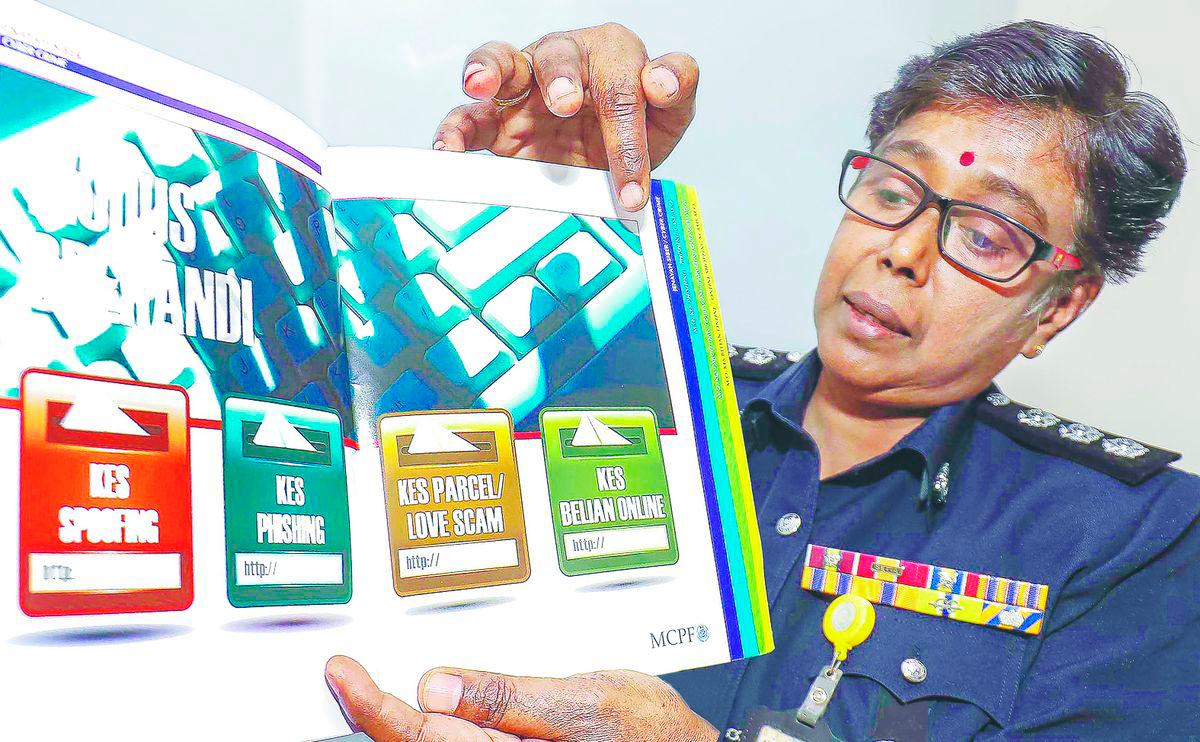PETALING JAYA: Online scams continue to surge across Malaysia, with cases reflecting a national trend, even in urban centres such as Sentul, which has a population of 1.3 million.
From Jan 1 to June 30 this year, 262 scam cases were recorded in the district. These included telecommunication fraud via SMS or online, e-financial scams, love scams and online purchase fraud.
Sentul district police Crime Prevention and Community Safety Department Operations and Support Resources Coordination Division head Asst Supt Veronica Lucy Peter said this marked an increase from the 206 cases reported during the same period last year.
Peter also said scammers are exploiting weaknesses in digital regulations.
“Many scams today are carried out using mobile apps that allow syndicates to remain hidden in plain sight. In countries such as China, apps such as WhatsApp are banned unless they meet strict regulatory standards. France also restricts platforms with known loopholes.
“But in Malaysia, such controls are minimal. That is why scam operations could take root within our borders,” she told theSun.
She said syndicates operating from cities often target victims overseas, taking advantage of lax digital oversight.
“In a recent case, we dismantled a scam operation in Kepong involving Uzbek and Chinese nationals. They were based here, but their victims were abroad.”
Peter added many fraudsters come from lower-income countries, but live luxurious lifestyles in Malaysia funded by online crimes.
“Street crimes such as snatch theft and pickpocketing have declined in places such as Bukit Bintang. Even pukau (hypnotic theft) is now rare.
“Today, the real danger is digital. Scammers could operate from the comfort of a rented home and no one would even know, especially in neighbourhoods where people no longer know each other.”
On “love scams”, which target older victims and widows, Veronica said scammers are adept at using emotional manipulation to steal money and assets.
“They build trust over time, especially with victims who are lonely or isolated. Once trust is gained, they strike.”
Veronica also reminded the public to keep the National Scam Response Centre (NSRC) hotline 997 on standby to report suspicious transactions.
The NSRC is a joint effort involving the National Anti-Financial Crime Centre, Royal Malaysia Police, Bank Negara Malaysia, the Malaysian Communications and Multimedia Commission, financial institutions and telcos.
“Scammers are skilled at inducing panic. When people get a fake call, they often react before thinking. Many obey instructions without questioning them and end up handing over personal information.
“If you realise you have been scammed, call 997. The NSRC can freeze transactions before money is lost. But timing is crucial – delay, and it may be too late.”
The NSRC operates from 8am to 8pm daily, including public holidays.









